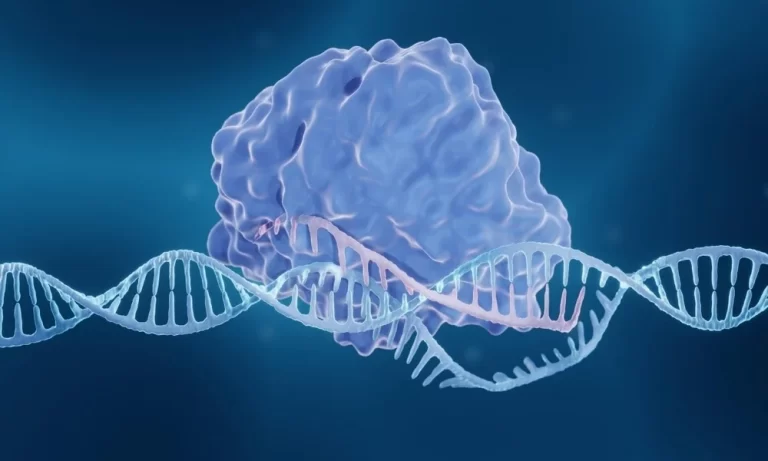
CRISPR and What It Means
CRISPR-Cas9 has taken the scientific world by storm. This revolutionary gene editing technology allows scientists to precisely cut and edit DNA, offering potential solutions to various challenges in medicine and agriculture. While CRISPR holds immense promise, its ethical implications necessitate careful consideration and ongoing dialogue.
Imagine a world free from the burden of genetic diseases like cystic fibrosis and sickle cell anemia. Envision a future with extended lifespans and a global food system free from the threat of devastating diseases and pests. These are just some of the potential applications of CRISPR technology.
On the medical front, CRISPR holds significant promise for curing genetic diseases by correcting the underlying genetic mutations that cause these conditions. Additionally, scientists are exploring the potential of CRISPR to improve human health and lifespan by targeting genes associated with aging and disease.
In the field of agriculture, CRISPR can be used to develop disease-resistant crops, leading to increased food production and improved food security. This technology offers the potential to address global challenges like hunger and malnutrition, ensuring a more sustainable and secure food system for future generations.
While the potential benefits of CRISPR are undeniable, its application raises several ethical concern. For example, Germline editing. This refers to editing genes that can be passed on to future generations. The potential consequences of unintended changes to the human germline raise significant ethical concerns, including the possibility of unforeseen negative impacts on future generations and the slippery slope it could lead towards practices resembling eugenics. CRISPR also had off-target effects and despite its remarkable precision, CRISPR can sometimes edit unintended parts of the genome, potentially causing unintended harm. Ensuring absolute accuracy remains a challenge for scientists, and ongoing research is crucial to minimize these off-target effects.
Concerns exist about unequal access to this technology, potentially exacerbating existing health and social disparities. Additionally, the potential for commercialization raises ethical questions about prioritizing profit over ethical considerations and ensuring equitable access to this potentially life-saving technology.Defining what constitutes “enhancement” and preventing its misuse for non-therapeutic purposes is a complex issue. Modifying non-disease-related traits like intelligence or athleticism raises ethical concerns about fairness, societal implications, and altering the very essence of what it means to be human.
CRISPR technology is still in its early stages, and the conversation surrounding its ethical implications is ongoing. Open dialogue, a focus on ethical considerations, and the development of responsible regulations are essential. Scientists, policymakers, and the public must work together to ensure that CRISPR is used for the benefit of humanity, with an emphasis on safety, equity, and responsible development. By navigating these ethical considerations, we can harness the power of CRISPR to create a brighter future for all.
SOURCES:
- National Human Genome Research Institute. “What is CRISPR-Cas9?” https://www.nih.gov/about-nih/what-we-do/nih-turning-discovery-into-health/transformative-technologies/crispr-revolution.
2. The Hastings Center. “The Bioethics Timeline.” Hastings Center, https://www.thehastingscenter.org/bioethics-timeline/.
3. Mayo Clinic. “Gene Editing.” Mayo Clinic, https://newsnetwork.mayoclinic.org/discussion/impact-on-health-care-of-genome-editing/.
4. Alliance for Science. “Alliance for Science Live: CRISPR for Agriculture.” Alliance for Science, https://allianceforscience.org/.

